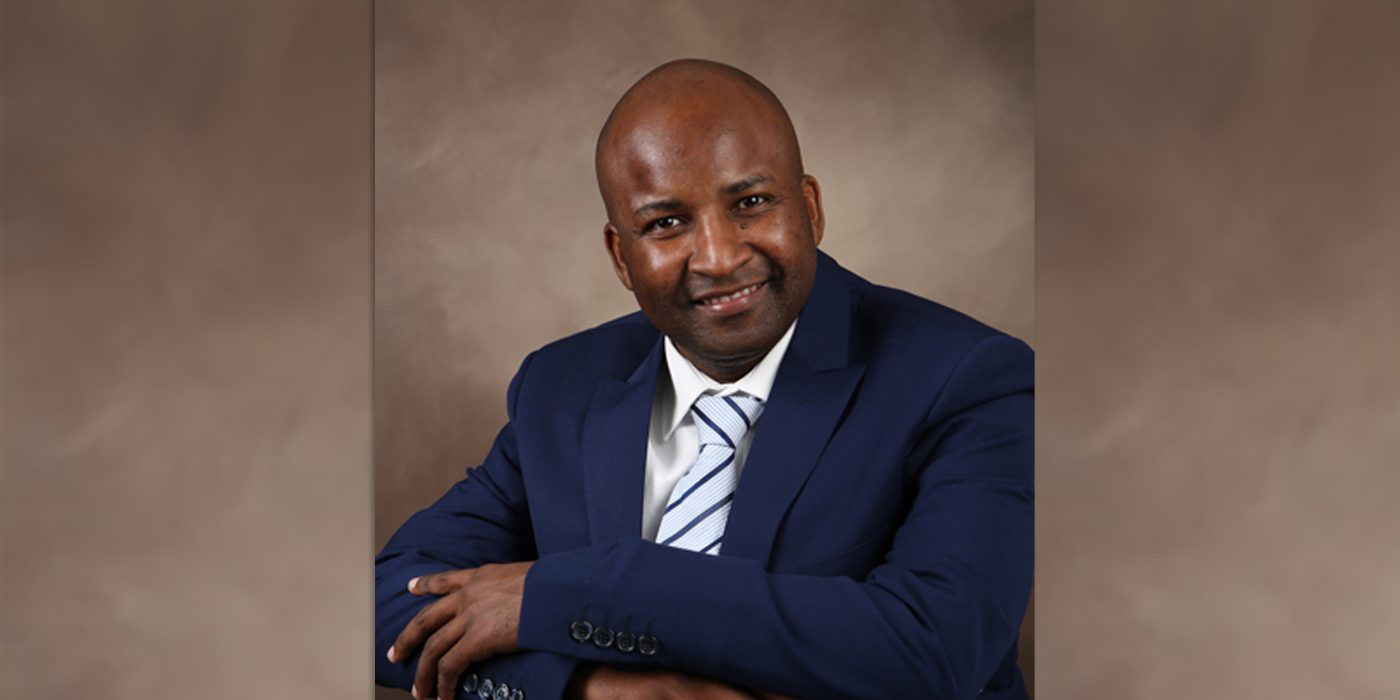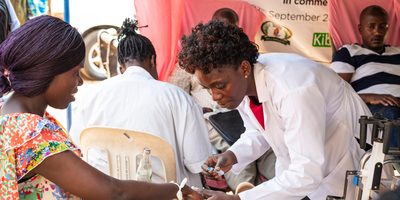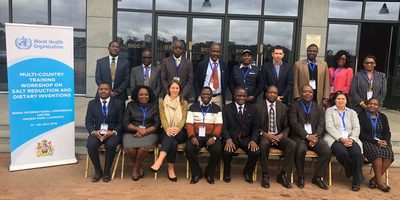
'Nobody should be denied healthcare because of where they live.'
Sikhumbuzo Mabunda is a Research Assistant at The George, currently completing his PhD at The University of New South Wales. He is part of the Institute’s Global Health Workforce Unit, which focuses on ways to improve access to affordable community-based care. Improving access to quality care is at the heart of what Sikhumbuzo wants to achieve in his career. The desire stems from his childhood experience growing up in a province close to Swaziland in South Africa, where getting quality care meant journeys to bigger cities far from home.
Sikhumbuzo is one of the rising stars at The George Institute’s Thought Leadership Program, which supports researchers in their mission to create real-world impact through their body of work.
How did your childhood experience inspire your career choice?
I describe myself as a South African rural boy from humble beginnings. Something happened when I was young that made me curious about healthcare. When my grandfather was diagnosed with cancer (laryngeal), he had to be transferred to the capital city (Pretoria) for care. The child in me was confused about why treatment was more than 500-kms away when there was a hospital within walking distance from home. I was told that people needed to travel to the city to get specialised care. Since then, I have dreamt of a world where everyone can easily access healthcare regardless of where they lived or their socio-economic status, because access to healthcare is a basic human right. I became a medical doctor and public health professional to help realise this dream.
What is the extent of this problem of inequitable distribution of resources?
Africa, especially sub-Saharan Africa, finds itself characterised as an underserved continent. It has the highest burden of disease in the world, the second largest population, and the biggest shortage of health professionals. In the UK and the US, every 1000 people will be treated by about 3 doctors, whereas in countries like Ghana it takes about 10,000 people to get a single doctor to attend to them. There are three main reasons people have lower access to health professionals in African countries. First, many African countries have limited capacity to train and produce health professionals. Secondly, health professionals tend to move to urban centres or to the private sector, so that people either need money to see a doctor, and/or if they live in rural areas, they’ll need to travel to see a health professional. The third and last reason, is health professionals moving overseas to more developed countries, usually outside the continent.
How does your current research contribute to solving this challenge?
My PhD research looks at how governments in selected African countries in the south of the continent have designed and implemented policies on training of health professionals to ensure better care to underserved populations. Despite adopting several policies, like mandatory service in public sector for the duration of government-funded training; many strategies have failed to ensure equitable distribution of resources. My role is therefore to assist governments in finding sustainable solutions.
My belief is that more healthcare delivery funding can be made available if governments adopt decisions that are evidence based. I want my research to contribute to this evidence and inform policies to help increase resource capacity, ensure skills-mix of health workers and improve overall resources for the population.
What impact do you hope to drive through your research?
Any given population’s quality of life is determined by how well the most vulnerable in society are doing. Quality care must be accessible to all - regardless of where they are on the map. The sad reality is that every part of the world has underserved populations. Learnings from Africa will hopefully help inspire the rest of the world to make universal health coverage a reality in practice and not on paper. I want to play a pivotal role in this effort.
What does ‘thought leadership’ mean to you?
Thought leadership means sharing my insights, and tapping into a global intelligence hub or network of individuals to help me get even closer to my dreams of equitable and fair access to quality healthcare, regardless of social or economic status.
Where can one find you when you’re not working?
I love soccer, especially South African soccer, music, politics and history. You could definitely find me in my kitchen - I am a great cook and baker - at least I think so! I love trying my hand at new recipes.





